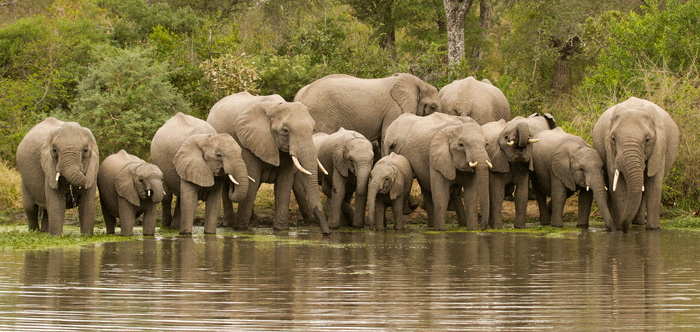The number of elephants in Karnataka goes up
Context:
According to an intermediate report on Asian Elephant Population and Demography Estimates, 2023, the expected number of elephants in Karnataka has climbed by 346, from 6,049 in 2017 to 6,395 in the present. This makes Karnataka the state with the biggest number of elephants in the nation. They are thought to have a population between 5,914 and 6,877.
What does the interim report on Asian Elephant Population and Demography Estimates, 2023 portray?
- According to a 2023 interim report on Asian Elephant Population and Demography Estimates, the number of elephants in Karnataka, India, has dramatically increased.
- From about 6,049 elephants in 2017 to about 6,395 elephants today, the number of elephants in Karnataka has increased by 346.
- With this rise, Karnataka is now the state in the nation with the highest density of elephants.
- August 12 is World Elephant Day, which is observed worldwide. The purpose of the day is to increase public awareness of the urgent need to preserve and protect elephant populations.
- The data was collected as a result of a coordinated elephant census that the Forest Department of Karnataka conducted in conjunction with neighbouring states including Kerala, Tamil Nadu, Andhra Pradesh, Maharashtra, and Goa.
What was the reason behind the rise in the number of Elephants?
- The government was able to safeguard elephants from different threats, both man-made and self-inflicted, such as railroad accidents, with the launch of Project Elephant in 1992. Due to the implementation of RFID and the automatic drum alarm system, these accidents decreased.
- Anti-depredation teams were hired by several international organizations and the Indian Forest Services to drive wild elephants away from populated areas. They are carefully trained to drive them away while employing the least lethal option available and with the least amount of bodily injury.
- Habitat Management: Elephant populations may become healthier with proper management of their habitats, which includes protected areas and wildlife reserves. The number of elephants in Karnataka may have increased if the management and protection of such habitats have been improved.
- Awareness: Public awareness campaigns and educational initiatives can help to lessen confrontations between people and elephants and promote a sympathetic attitude toward the preservation of elephants. It may have resulted in greater coexistence if villagers in Karnataka had been made aware of the value of safeguarding elephants and their habitats.
What is Project Elephant?
Project Elephant is an effort to rescue and preserve the Asian elephant, which is considered to be the national animal of India. The Ministry of Environment, Forests, and Climate Change of the Government of India established the initiative in 1992 after realizing the pressing need to address the dwindling number of elephants and the difficulties they encounter as a result of habitat degradation, human-elephant conflict, and poaching.
What are the objectives of Project Elephant?
- Elephant habitat conservation: To preserve the long-term survival of the species, the project is focused on safeguarding elephant habitats and migration routes. This entails safeguarding and reestablishing ecosystems that are vital to the existence of elephants.
- Mitigation of Human-Elephant Conflict: When elephants clash with human settlements, human-elephant conflict results, causing fatalities, property destruction, and harm to both humans and elephants. Project Elephant seeks to put policies in place that will lessen these conflicts and encourage harmonious cooperation.
- Welfare and health care of the captive elephants: The project also covers the well-being of captive elephants, who are frequently employed in celebrations and tourism as well as other activities. It specifies standards for the appropriate handling, management, and medical assistance of captive elephants.
- research and Monitoring: For effective conservation methods, ongoing study and monitoring of elephant numbers, behaviour, and health are necessary. To learn more about elephants and their ecological requirements, the project supports research and information gathering.
- Education and Awareness: It is essential to educate the public, legislators, and local communities on the value of protecting elephants. To instil a sense of obligation toward elephant protection, Project Elephant runs educational campaigns and outreach initiatives.
- Capacity Building: Building capacity is a crucial component of the project because it will enable local people, forest and wildlife departments, and other organizations to manage and conserve elephant populations.





